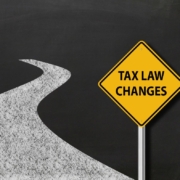Tax Return Question: Are You Required to File a Tax Return?
- Find out when you are required to file a tax return.
- Learn the income limits for filing as self-employed taxpayers.
- Learn about filing thresholds.
- Discover the benefits of filing even when not required to file.
- Find out if you have refundable tax credits.
“Do I have to file a tax return?”
This is a question taxpayers ask during this time of year, and the question is more complicated than people believe. There are times when individuals are REQUIRED to file a tax return. There are also times when it is to the individuals’ BENEFIT to file a return, even if not required to file. If you’re sitting there scratching your head and wondering why you didn’t know this already—Fiducial gets it. Sit back and learn!
When individuals are required to file:
- Generally, individuals are required to file a tax return if their income exceeds their filing threshold (see the table below). The filing thresholds generally are the same amount as the standard deduction for individual(s).
- Taxpayers are required to file a tax return if they have net self-employment income in excess of $400, since they are required to file self-employment taxes (the equivalent to payroll taxes for an employee) when their net self-employment income exceeds $400.
- Taxpayers are also required to file a tax return when they are required to repay a credit or benefit. For example, taxpayers who underestimated their income when signing up for health insurance through a government Marketplace and received a higher advance premium tax credit (APTC) than they were entitled to, are required to repay part of it. Therefore, all individuals who received an APTC must file a return to reconcile the advance payments with the actual credit amount, even if their income is less than the filing threshold amount and even if they don’t need to repay any of the advance credit.
- Filing is also required when a taxpayer owes a penalty, even though the taxpayer’s income is below the filing threshold. This can occur when a taxpayer has an IRA 6% early withdrawal penalty or the 50% penalty for not taking a required IRA distribution.
2019 – Filing Thresholds

When it is beneficial for individuals to file:
If you don’t fall into the category of “have to” file, still consider filing a tax return. There are a number of benefits available when filing a tax return that can produce refunds even for taxpayers not required to file:
- Withholding refund– A substantial number of taxpayers fail to file their return even when the tax they owe is less than their prepayments, such as payroll withholding, estimates, or a prior over-payment. The only way to recover the excess is to file a return.
- Earned Income Tax Credit (EITC) – If you worked and did not make a lot of money, you may qualify for the EITC. The EITC is a refundable tax credit, which means you could qualify for a tax refund. The refund could be as high as several thousand dollars even if not required to file a tax return.
- Child Tax Credit– This is a $2,000 credit for each qualifying child, a portion of which may be refundable for lower income taxpayers and phases out for higher income taxpayers.
- American Opportunity Credit – The maximum for this credit for college tuition paid per student is $2,500. The first four years of post-secondary education qualify. Up to 40% of the credit is refundable if you have no tax liability, even if not required to file a tax return.
- Premium Tax Credit– Lower-income families are entitled to a refundable tax credit to supplement the cost of health insurance purchased through a government Marketplace. To the extent the credit is greater than the supplement provided by the Marketplace, it is refundable even if there is no other reason to file.
Final thoughts…
DON’T PROCRASTINATE! There is a three-year statute of limitations on refunds, and after it runs out, any refund due is forfeited. Who wants to miss out on a tax refund? The statute is three years from the due date of the tax return. So, the refund period expires for 2019 returns, which will be due in April of 2020, on April 15, 2023.
If you need more information about filing requirements and your eligibility to receive tax credits, call Fiducial at 1-866-FIDUCIAL. Speak to one of our representatives or make an appointment at one of our office locations. If you think you may be entitled to a refund, don’t miss out–book an appointment today! Know someone who might need our services? We love referrals!









